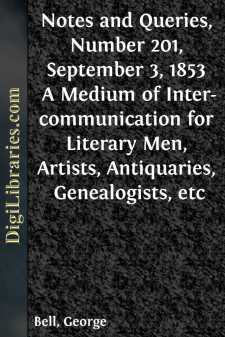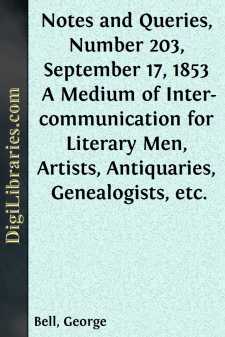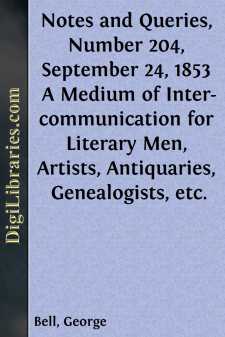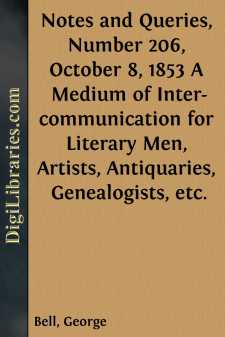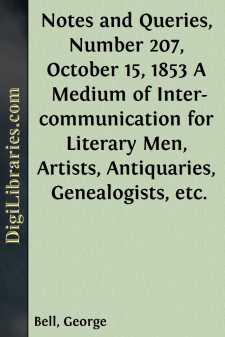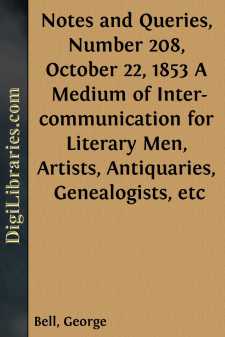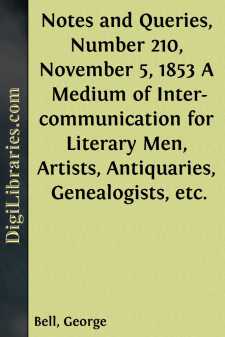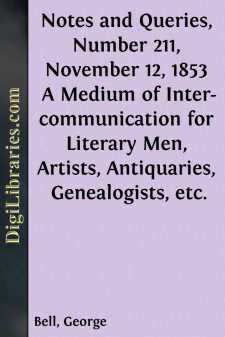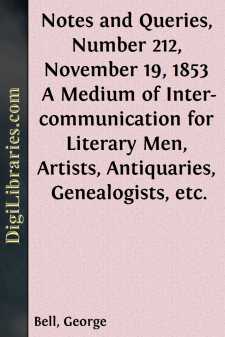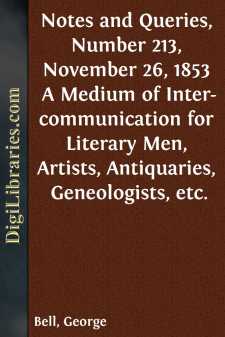Categories
- Antiques & Collectibles 13
- Architecture 36
- Art 48
- Bibles 22
- Biography & Autobiography 813
- Body, Mind & Spirit 142
- Business & Economics 28
- Children's Books 17
- Children's Fiction 14
- Computers 4
- Cooking 94
- Crafts & Hobbies 4
- Drama 346
- Education 46
- Family & Relationships 57
- Fiction 11829
- Games 19
- Gardening 17
- Health & Fitness 34
- History 1377
- House & Home 1
- Humor 147
- Juvenile Fiction 1873
- Juvenile Nonfiction 202
- Language Arts & Disciplines 88
- Law 16
- Literary Collections 686
- Literary Criticism 179
- Mathematics 13
- Medical 41
- Music 40
- Nature 179
- Non-Classifiable 1768
- Performing Arts 7
- Periodicals 1453
- Philosophy 64
- Photography 2
- Poetry 896
- Political Science 203
- Psychology 42
- Reference 154
- Religion 513
- Science 126
- Self-Help 84
- Social Science 81
- Sports & Recreation 34
- Study Aids 3
- Technology & Engineering 59
- Transportation 23
- Travel 463
- True Crime 29
Sort by:
by:
George Bell
"THAT SWINNEY." Junius thus wrote to H. S. Woodfall in a private note, to which Dr. Good has affixed the date July 21st, 1769 (vol. i. p. 174.*) "That Swinney is a wretched but dangerous fool. He had the impudence to go to Lord G. Sackville, whom he had never spoken to, and to ask him whether or no he was the author of Junius: take care of him." This paragraph has given rise to a great...
more...
by:
George Bell
OUR SHAKSPEARIAN CORRESPONDENCE. We have received from a valued and kind correspondent (not one of those emphatically good-natured friends so wittily described by Sheridan) the following temperate remonstrance against the tone which has distinguished several of our recent articles on Shakspeare:— Shakspeare Suggestions (Vol. viii., pp. 124. 169.).— "Most busy, when least I do." I am...
more...
by:
George Bell
EXTINCT VOLCANOS AND MOUNTAINS OF GOLD IN SCOTLAND. It is by some supposed that the Hill of Noth, in the parish of Rhynie, Aberdeenshire, had at one time been a volcano in full operation: others, again, maintain that the scoria found on and in the neighbourhood are portions of a vitrified fort, which had at one time stood on its summit. I am not aware that the matter has been investigated since our...
more...
by:
George Bell
NOTES ON NEWSPAPERS: "THE TIMES," DAILY PRESS, ETC. A newspaper, rightly conducted, is a potent power in promoting the well-being of universal man. It is also a highly moral power—for it quickens mind everywhere, and puts in force those principles which tend to lessen human woe, and to exalt and dignify our common humanity. The daily press, for the most part, aims to correct error—whether...
more...
by:
George Bell
Notes on Midland County Minstrelsy. It has often occurred to me that the old country folk-songs are as worthy of a niche in your mausoleum as the more prosy lore to which you allot a separate division. Why does not some one write a Minstrelsy of the Midland Counties? There is ample material to work upon, and not yet spoiled by dry-as-dust-ism. It would be vain, perhaps, to emulate the achievements of...
more...
by:
George Bell
A PROPHET. What a curious book would be "Our Prophets and Enthusiasts!" The literary and biographical records of the vaticinators, and the heated spirits who, after working upon the fears of the timid, and exciting the imaginations of the weak, have flitted into oblivion! As a specimen of the odd characters such a work would embrace, allow me to introduce to your readers Thomas Newans, a...
more...
by:
George Bell
LORD HALIFAX AND MRS. CATHERINE BARTON. Those who have written on the life of Newton have touched with the utmost reserve upon the connexion which existed between his half-niece Catherine Barton, and his friend Charles Montague, who died Earl of Halifax. They seem as if they were afraid that, by going fairly into the matter, they should find something they would rather not tell. The consequence is,...
more...
by:
George Bell
NOTES ON GRAMMONT. Agreeing with Mr. Peter Cunningham (vide History of Nell Gwyn), that a new edition of Grammont is much wanted, I beg to avail myself of your pages, and to offer a few remarks and notes which I have made in reference to that very entertaining work for the consideration of a future annotator. Of the several maids of honour mentioned therein I will begin with those of the queen. They...
more...
by:
George Bell
PARTY-SIMILES OF THE SEVENTEENTH CENTURY—NO. I. "FOXES AND FIREBRANDS." NO. II. "THE TROJAN HORSE." With Englishmen, at least, the seventeenth was a century pre-eminent for quaint conceits and fantastic similes: the literature of that period, whether devotional, poetical, or polemical, was alike infected with the universal mania for strained metaphors, and men vied with each other in...
more...
by:
George Bell
THE STATE PRISON IN THE TOWER. A paragraph has lately gone the round of the newspapers, in which, after mentioning the alterations recently made in the Beauchamp Tower and the opening of its "written walls" to public inspection, it is stated that this Tower was formerly the place of confinement for state prisoners, and that "Sir William Wallace and Queen Anne Boleyn" were amongst its...
more...


